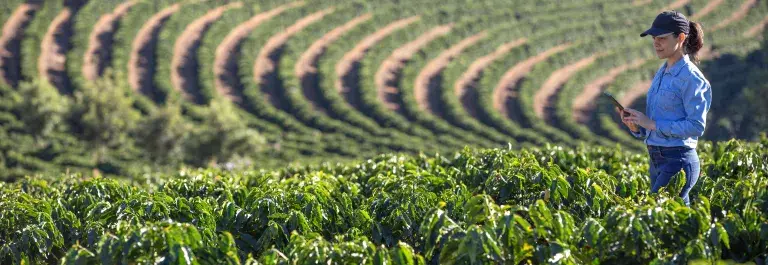Credible sustainability systems and the evolution of corporate due diligence
Supply chain due diligence is shifting from a narrow focus on compliance to a broader responsibility for managing impacts. Credible sustainability systems are critical partners in this transition, helping companies meet regulatory requirements while reducing risks and advancing environmental and social progress.
Patrick Mallet, ISEAL Director, Credibility and Innovations, highlights how systems with rigorous, credible structures in place not only help identify and report supply chain risks but also help mitigate and remediate them over time.
Corporate due diligence, which historically focused on financial aspects, has significantly broadened its scope to include ethical and sustainability considerations. This evolution is understood in two ways.
The narrow interpretation focuses on identifying and minimising business risks. A prime example of this is the EU Deforestation Regulation (EUDR), which mandates that companies understand and gather data on the origin of their supply to prove it is deforestation-free and in compliance with local laws. This approach is mainly about avoiding specific risks within the supply chain.
In contrast, a broader interpretation, particularly supported by the OECD, defines due diligence as an "obligation to take reasonable steps to avoid harm to others". This means that simply excising a problematic supplier is no longer enough. “If there are human rights abuses, it's not just about identifying it and getting it out of your supply chain. It's about taking responsibility for that, seeing how you can improve your practices over time," Patrick explains.
Expectations from various stakeholders including governments, investors and consumers are rising. Companies face increasing requirements for reporting, disclosure and mitigation across issues such as nature loss and climate impact. While there has been some pushback on regulations in the EU, the overall trajectory is that corporate accountability is expanding. This shift is not merely driven by legislation, but also reflects a pragmatic need for resilience, risk management and supply chain security in the face of global disruptions.
In short, companies of all sizes will be expected to demonstrate responsible management of operations and show measurable progress on critical sustainability impacts.
The role of sustainability systems
Sustainability systems play an essential role in this evolving landscape, though they do not replace corporate responsibility. As Patrick emphasises, “sustainability systems don’t offer a green lane for companies. They’re not a way to abdicate responsibility for due diligence.” Instead, they provide tools that support companies in their due diligence journey.
These tools include supply chain transparency and traceability, identifying where products come from and ensuring alignment with regulations like the EUDR. They also include risk assessment, using data collection and audits to identify non-compliance risks, whether this is prevalence of child labour, the threat of deforestation, or water scarcity. Moreover, many systems are moving beyond simple 'pass / fail’ compliance to offer improvement pathways, helping businesses address issues and mitigate risks over time, rather than just identifying them.
Importantly, these sustainability systems are adapting to new expectations. Traditional audits can be costly and limited, offering only snapshots of performance. Sustainability systems are continuously moving beyond certification and compliance into sustainability impact tools: driving performance improvement. They are shifting toward real-time, data-driven assessments that combine multiple information sources. Technology, including AI, is being explored for predictive risk analysis. Having better risk information enables auditors on the ground to focus on areas where the risks are highest. At the same time, interoperability and new traceability models are helping companies monitor both certified and non-certified supply, ensuring compliance across entire value chains.
Beyond compliance, towards broader value
Many companies are motivated to improve the sustainability of their business operations not only because of regulation but also by a need to have better security of supply and long-term resilience.
Credible sustainability systems enable this broader vision by recognising the connection between climate impacts, biodiversity and livelihoods. This more holistic approach provides additional value beyond legal compliance, supporting companies in embedding sustainability more deeply into their operations.
In today’s environment, the risk of ‘greenwashing’ adds another layer of scrutiny. Legislation such as the EU’s Green Claims and Empowering Consumers directives essentially extend the principle of ‘truth in advertising’ to the sustainability sector. From a company's standpoint, this means not only performing thorough due diligence to ensure good sustainability practices but also communicating these efforts accurately through green claims. Credible sustainability systems have decades of experience in curating and managing credible claims-making, providing a proven path for companies.
Both greenwashing regulations and due diligence legislation are governmental responses designed to position companies as more responsible actors in the market. Corporate due diligence is no longer optional. It reflects an irreversible shift toward greater accountability and integrated sustainability. The journey ahead will require companies to engage proactively and sustainability systems can play a critical role in supporting this transition. Companies that embrace this broader vision will not only mitigate risks but also strengthen resilience, enhance credibility and build genuinely sustainable supply chains fit for the future.
